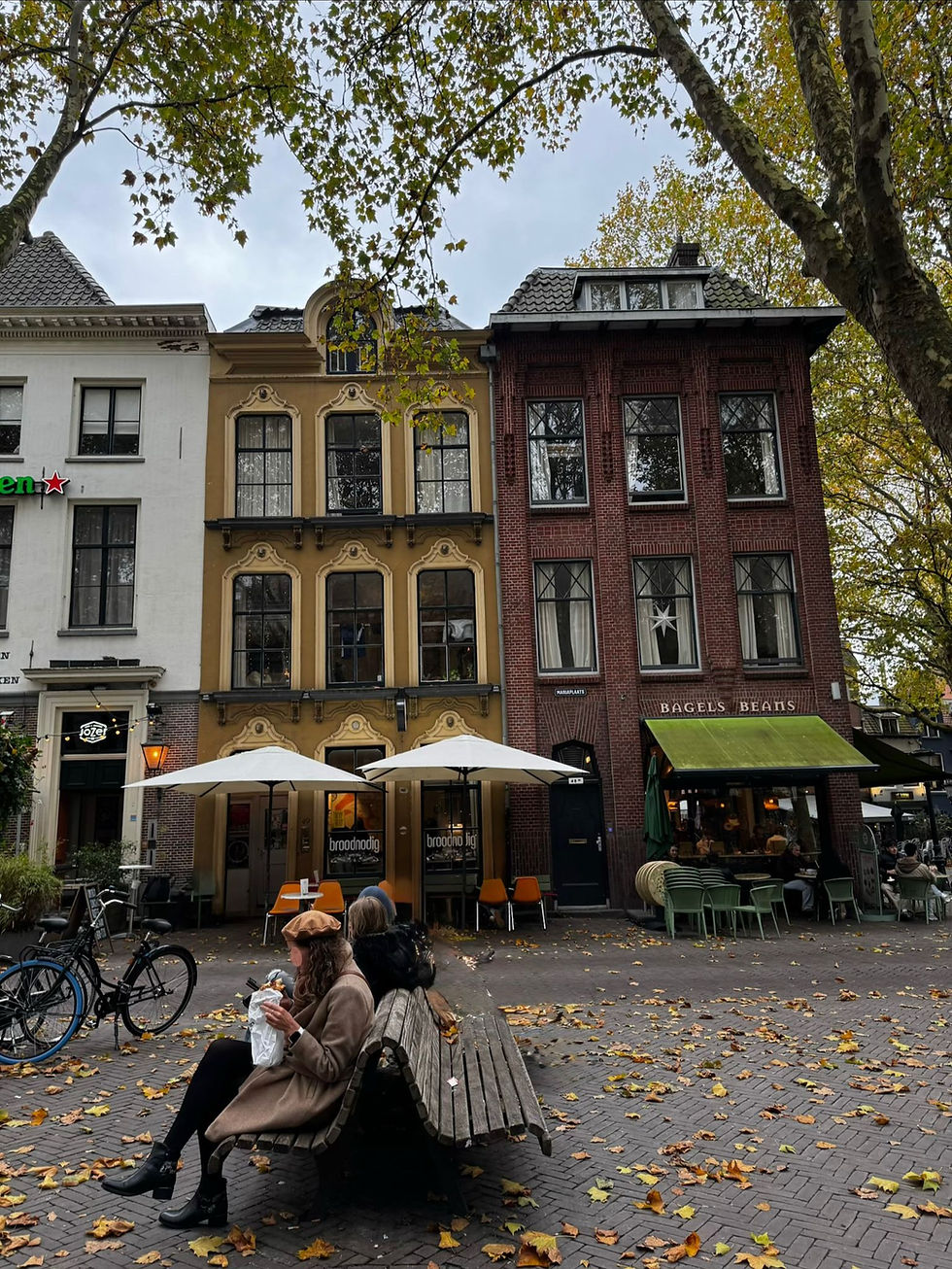Compulsory Identification in the Netherlands
- Darien Wilson

- Aug 13, 2025
- 3 min read
By Darien Wilson As an American living in the Netherlands, I love how advanced the banking is. I rarely use cash, as “tap to pay” works almost everywhere—even at local markets. So it would be tempting to leave my wallet at home and just take my phone when I leave the house. I'm all about traveling as light as possible, and replacing a lost or stolen residence permit would be both expensive and a hassle.

Nevertheless, I carry my wallet every time I leave my Dutch home, because in the Netherlands, carrying valid identification is "verplicht" - compulsory for everyone aged 14 and older.
The Compulsory Identification Act
Since January 1, 2005, the Compulsory Identification Act (Wet op de identificatieplicht) has required everyone age 14 and older to carry valid identification at all times. Failure to do so is a criminal offense that can result in fines. (Source: Government.nl in English; rijksoverheid.nl in Dutch)
What Counts as Valid ID in the Netherlands?
If you, like me, are a big fan of your Museumkaart, unfortunately, it won't work as a valid form of ID. And anyway, Museumkaart recently moved to a digital card. The Dutch are so efficient and tech-forward!
So what forms of identification are considered acceptable in the Netherlands?
If you're a tourist from the U.S. – You must carry your U.S. passport book. A passport card is not acceptable. (Source: U.S. Embassy)
If you're a resident of the Netherlands – Your residence permit or passport would be valid proof of identity.
A driver’s license issued in the Netherlands or another EU/EEA country would also be condidered acceptable as a valid identification in some but not all cases.
What if you've applied for a DAFT residence permit but it's still in process? If you don't yet have a residence permit, it would be wise to carry your U.S. passport book when you leave home. Personally, I carry mine in a small, lightweight crossbody bag. While pickpocketing is rare in the Netherlands outside of the most touristy areas, I prefer to err on the side of caution.
So, when would this come up, anyway?
If you're in a traffic accident - for example, you accidentally run into another cyclist on the road, or they run into you - or if you find yourself in the midst of a public safety incident where crowd control is necessary, you might be asked for your ID. (Source: government.nl) While the second scenario happens pretty rarely, the first one, unfortunately, is not all that unlikely, especially in your first year in the Netherlands.
In addition to police officers, the following officials can request identification in the Netherlands:
Ticket inspectors on public transport
Labor inspectors
Forest wardens (boswachters)
Care providers and employers
Final Tip
Even if you prefer using digital payment methods, make sure to carry valid identification with you at all times in the Netherlands. It’s not just a good habit—it’s the law.
As always, the most accurate and up-to-date sources for information like this are official government websites such as https://www.government.nl/ , rijksoverheid.nl, or https://nl.usembassy.gov/.
Have Questions?
If you’re considering a move to the Netherlands and would like personalized guidance, please don’t hesitate to reach out.
© 2025 Darien Wilson All Rights Reserved




Comments